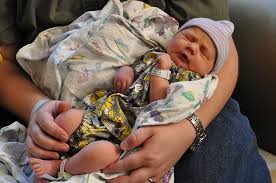
Nirsevimab Therapy Reduces Hospitalization Risk for RSV-Associated Bronchiolitis in Infants
Nirsevimab therapy has been shown to significantly reduce the risk of hospitalization for respiratory syncytial virus (RSV)-associated bronchiolitis among infants, according to a study published in the July 11 issue of the New England Journal of Medicine.
The study, led by Dr. Zein Assad from Robert Debré University Hospital in Paris, was a prospective, multicenter, matched case-control design. It aimed to evaluate the effectiveness of nirsevimab therapy in preventing hospitalizations due to RSV-associated bronchiolitis in infants under 12 months of age.
Study Design and Participants
The researchers conducted the study across multiple centers, enrolling 1,035 infants, with 690 case patients and 345 control patients. Case patients were infants hospitalized for RSV-associated bronchiolitis, while control patients were infants who had clinical visits for conditions unrelated to RSV infection. The controls were matched to the cases based on age, date of hospital visit, and study center.
Findings on Nirsevimab Effectiveness
Of the enrolled infants, 60 case patients and 97 control patients had previously received nirsevimab. The study found that nirsevimab therapy was highly effective, with an estimated adjusted effectiveness of 83.0% against hospitalization for RSV-associated bronchiolitis.
Further analysis revealed that nirsevimab also reduced the severity of RSV cases, showing effectiveness against RSV-associated bronchiolitis resulting in critical care and ventilatory support.
Implications for Pediatric Care
The study's results indicate that nirsevimab prophylaxis is a robust preventive measure against severe RSV-associated bronchiolitis in infants, including cases necessitating intensive care and ventilatory support.
“Nirsevimab prophylaxis was effective against RSV-associated bronchiolitis leading to hospitalization among infants younger than 12 months of age, including those with severe cases that led to pediatric intensive care unit admission and ventilatory support,” the authors concluded.
These findings could have significant implications for pediatric healthcare, providing a potent tool to protect vulnerable infants from severe RSV infections and reduce the burden on healthcare systems.